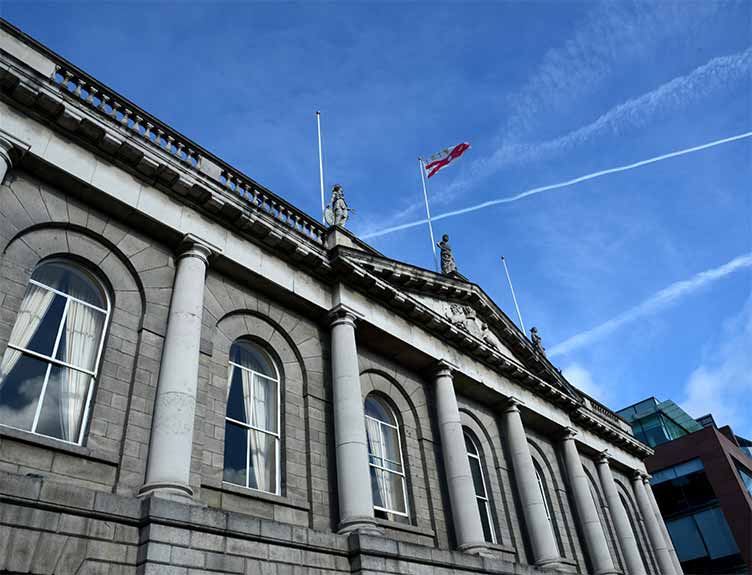The urgent need to reconnect with nature for young people's mental health

A team from the Centre for Positive Health Sciences at RCSI University of Medicine and Health Sciences led by Dr Jolanta Burke has partnered up with organisations across five EU countries and secured €5.5 million in funding from the Interreg EU programme for an initiative aimed at developing innovative forest-based tools to support adolescents and their families in improving and maintaining their positive health.
The RCSI Centre for Positive Health Sciences team, Dr Jolanta Burke (Principal Investigator), Dr Elaine Byrne, Dr Mary Clarke, Prof. Christian van Nieuwerburgh, Dr Holli-Anne Passmore and PhD candidates Kate Brassington and Branislav Kaleta, will be involved in this four-year project.
Their work will focus on co-designing a series of forest-based psychological interventions (real-life and virtual reality) that mental health professionals, young people, and their families can engage with to enhance adolescent health and well-being.
They will also explore how foresters can adapt Irish forests to create more welcoming environments for young people. By the end of the project, this initiative will deliver a suite of innovative solutions designed to deepen adolescents’ engagement with nature, helping to safeguard them against anxiety, depression, and other mental health challenges as well as improving their psychological, emotional and social well-being.
Dr Jolanta Burke said: "Many young people are struggling, and our research with nearly 3,000 students reveals a concerning decline in wellbeing as adolescents progress through their education. A cost-effective way to support them is by connecting them with the natural resources of nearby forests, encouraging them to embrace their restorative benefits from an early age. This project has the potential to transform the lives of many young people living in Ireland and their families. It could make our beautiful forests more inviting to them."
Faced with the mental health problems experienced by adolescents, the Forest4Youth project, co-funded by Interreg North-West-Europe, is proposing an innovative solution: exploring the therapeutic power of forests to improve teenagers' well-being.
Today, 17.5% of young people in north-western Europe suffer from mental disorders such as depression, anxiety or addiction. Mental health services are struggling to meet this growing demand. It is therefore essential to rethink therapeutic support by integrating varied, more accessible and sustainable approaches.
A natural recovery area
Research shows that forest immersion has a direct and beneficial impact on mental health, particularly on symptoms of depression and anxiety, reducing stress, improving mood and promoting concentration. Yet these natural therapies remain under-exploited.
More than 20% of north-western Europe is covered by natural areas that could be used for the benefit of adolescents living with mental health problems. The Forest4Youth project improves the integration of the forest in therapeutic devices thanks to the following results:
- Identification of pilot therapeutic forests in several European countries.
- The development of a care protocol combining real immersion in the forest and virtual reality.
- Accompanying adolescents in therapeutic forest programmes.
- Training for mental health professionals and foresters.
- The creation of reference training centres.
A transnational approach
Forest4Youth is based on an unprecedented collaboration between mental health professionals and the owners and managers of forests and green spaces. The aim is to develop accessible solutions that can be implemented on a large scale, so that young people can benefit from these therapies.
"Reconnecting teenagers with nature gives them a chance to improve their mental health," explain the project's initiators.
The project also calls on public decision-makers to integrate these solutions into health and regional planning policies.
At a time when the mental health of young people is becoming a societal emergency, natural spaces represent a precious and widely available resource: exploiting them for their well-being is a necessity.




